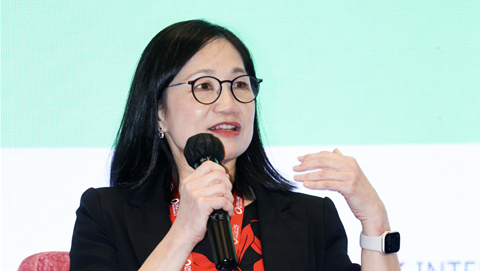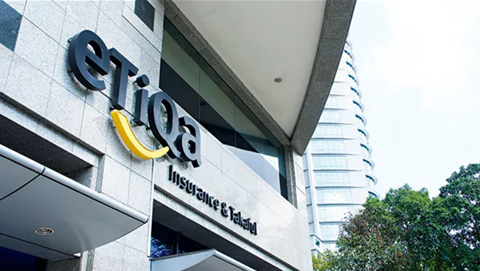Monetary Authority of Singapore’s (MAS) Managing Director, Ravi Menon, said there were “no apparent contradictions” between promoting Singapore as a Fintech hub, partnering with industry to explore distributed ledger technology (DLT), and supporting innovation in digital asset use cases, and MAS’ “stringent and lengthy licensing process” for those who want to carry out crypto-related services.
During his opening address at the Green Shoots seminar in Singapore on Monday, organised by MAS in collaboration with Elevandi, Menon outlined the policy thinking behind the regulator’s nuanced approach to digital assets.
While reiterating that cryptocurrencies are unsuitable for use as money and were “highly hazardous for retail investors”, Menon said MAS saw "potential in stablecoins provided they are securely backed by high-quality reserves and are well-regulated”.
Stablecoins are tokens whose value is tied to another asset, usually fiat currencies such as the US dollar.
Menon noted that stablecoins “seek to combine the credibility that comes from their supposed stability, with the benefits of tokenisation which allow them to be used as payment instruments on distributed ledgers”.
He said stablecoins are beginning to find acceptance outside of the crypto ecosystem.
“Some firms like Mastercard have integrated popular stablecoins into their payment services. This can be a positive development if stablecoins can make payments cheaper, faster, and safer,” Menon said.
He, however, added the caveat that to reap the benefits of stablecoins, “regulators must ensure that they are indeed stable”.
Consultation process
He said MAS will propose for consultation a regulatory approach for stablecoins by October.
Menon added that stablecoins can “realise their potential only if there is confidence in their ability to maintain a stable value”.
He noted that many stablecoins lack the ability to uphold the promise of stability in their value as some of the assets backing them – such as commercial papers – are exposed to credit, market, and liquidity risks
Also, there are currently no international standards on the quality of reserve assets backing stablecoins, he added.
Reiterating MAS’ position on cryptocurrencies, Menon said they are “digital assets issued directly by a distributed ledger protocol” and are actively traded and heavily speculated upon, “with prices that have nothing to do with any underlying economic value” related to their use on the distributed ledger.
He added that this “extreme price volatility” rules out cryptocurrencies as a viable form of money or investment asset.
“This speculation in cryptocurrencies is what MAS strongly discourages and seeks to restrict”, he added.
MAS has been considering further measures to reduce consumer harm from cryptocurrency speculation, Menon said.
These include adding frictions on retail access to cryptocurrencies.
These may include customer suitability tests and restricting the use of leverage and credit facilities for cryptocurrency trading, he added.
No ban on cryptocurrencies
Menon, however, said banning retail access to cryptocurrencies was not likely to work.
“The cryptocurrency world is borderless… With just a mobile phone, Singaporeans have access to any number of crypto exchanges in the world and can buy or sell any number of cryptocurrencies”, he said.
Menon added: “Safeguarding consumers from harm requires a multi-pronged approach, not just MAS regulation.”
He added that MAS sought to anchor in Singapore crypto players who can value add to Singapore’s digital asset ecosystem and have strong risk management capabilities.
Menon noted that with the rapid growth in scale and complexity of digital asset activities, various risks have surfaced.
He said there were five areas of risk in digital assets that MAS’ regulatory approach was focused on.
- Combating money laundering and terrorist financing risks;
- Managing technology and cyber-related risks;
- Safeguarding against harm to retail investors;
- Upholding the promise of stability in stablecoins; and
- Mitigating potential financial stability risks
Singapore wants to be a hub for innovative and responsible digital asset activities that enhance efficiency and create economic value, Menon said: “The development strategy and regulatory approach for digital assets… go hand-in-hand towards achieving this”.









